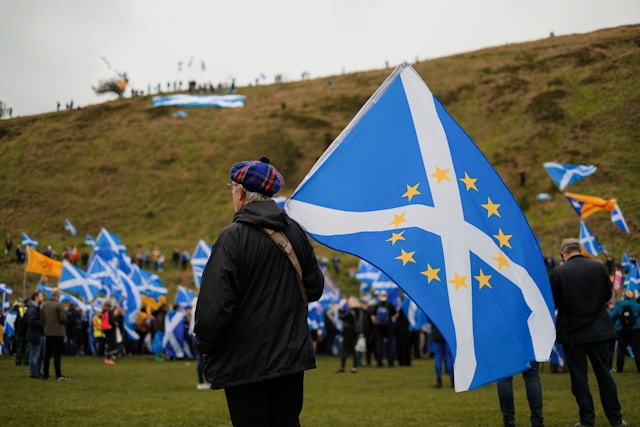Scotland’s government faces turmoil as key coalition agreement ends abruptly
In a sudden turn of events, the power-sharing deal between the Scottish National Party (SNP) and the Scottish Green Party has crumbled following an emergency cabinet meeting. Scottish Greens co-leaders Lorna Slater and Patrick Harvie were observed exiting Bute House, expressing disappointment and accusing the SNP of neglecting future generations.
The rupture in the coalition stemmed from the Scottish government’s controversial decisions regarding climate targets for 2030 and responses to a review on gender services. These actions prompted the Scottish Greens to withdraw their support, leading to the collapse of the agreement.
Embed from Getty ImagesGreen co-leader Patrick Harvie had previously stated that he would step down if the Greens opted to terminate the coalition, underscoring the gravity of the decision. Despite expressing confidence that their members would have backed continued collaboration, the Greens were denied the opportunity to do so.
According to SNP Energy Secretary Mairi McAllan, Scotland’s 2030 net-zero target has become unattainable, further complicating the situation. Additionally, Scotland’s NHS announced a halt to prescribing puberty blockers to under-18s, exacerbating tensions within the coalition.
The fallout from the collapsed agreement has opened a new chapter in Scottish politics, with SNP MP Joanna Cherry advocating for a reset of the government’s agenda, focusing on substantive issues over identity politics. Meanwhile, Scottish Labour’s deputy leader Jackie Baillie characterized the government as “chaotic and incompetent,” emphasizing the impact of SNP shortcomings on the lives of Scots.
As Scotland grapples with the aftermath, the future of governance hangs in the balance, highlighting the fragility of political alliances and the challenges of coalition governance
